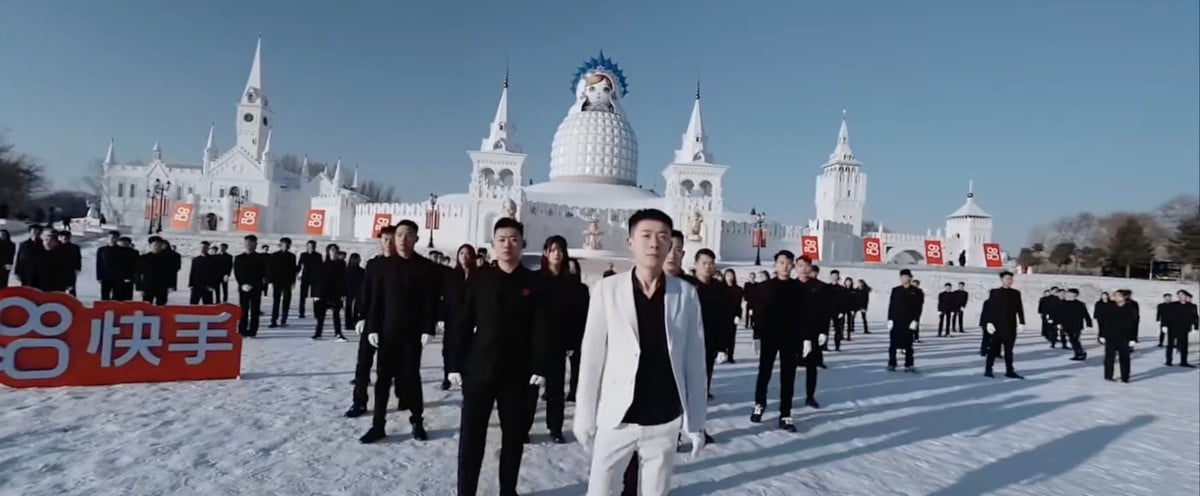If you think rap only belongs to gangsters and rebellious youth, think again. Zhang Tiegang, one of China’s most talented rappers, is a woman from Liaoning’s countryside, the smallest but most populous province in Northeast China known for producing soybeans rather than world-class rappers.
Zhang recently went viral on the short video platform Douyin, China’s equivalent of TikTok, for posting a cover of hip hop hit ‘Plain Jane’ by American rapper A$AP Ferg. The video had more than 3.2 million views at the time of writing.
Despite only lasting a few seconds and having an unglamorous backdrop, the clip has earned Zhang the unofficial title of “China’s number one rapper,” as bestowed by Chinese netizens.
Social media users have marveled at her impeccable English accent and sense of rhythm and dropped comments such as, “A tractor on the outside, a Ferrari on the inside,” and “NYU graduate who went back to the countryside.” Many also find her positive attitude and raw editing refreshing — “therapeutic,” even.
Zhang, often surrounded by family members and fellow villagers in her videos, provides glimpses of frugal, rural life in the countryside via her content.
Her success is arguably tied to a broader phenomenon whereby Chinese consumers crave ‘rural content.’ Case in point: the hashtag for ‘Recording My Life in the Countryside’ (#记录我的农村生活#) has amassed a staggering 27 billion views on Douyin, and several bloggers have blown up for their creative — and often unfiltered — depictions of rural life.
When the trend first kicked off, most content creators shared romanticized and idealized visions of countryside living — think fairy-like vlogger Li Ziqi’s mesmerizing and highly-staged videos.
More recently, however, raw and unfiltered content has grown in popularity. A prime example would be vlogger Classmate Zhang (张同学)’s videos. Also a native of Liaoning province, Zhang, who has 18 million followers, is famous for sharing snippets of countryside life, from sourcing water from a well to cooking delicious meals in a spartan kitchen.
Despite lacking the glamour and convenience of city life, Zhang’s daily routine strikes audiences as meaningful and is filled with heart-warming interactions with his neighbors and family.
More popular content revolving around unadorned life in the countryside includes viral videos of disabled carpenter Erjiu and Teacher Liu; the latter proudly showcases the beauty of his hometown Yangshuo, a city in South China, in thickly accented English, but is unafraid of judgment.
Netizens’ interest in ‘rural content’ can be interpreted as a thirst for realism. To some, the manufactured, polished content on Chinese apps fails to capture authentic and diverse experiences in the world’s most populous country. A whopping 500 million people currently reside in the Chinese countryside.
Cover image via YouTube


















